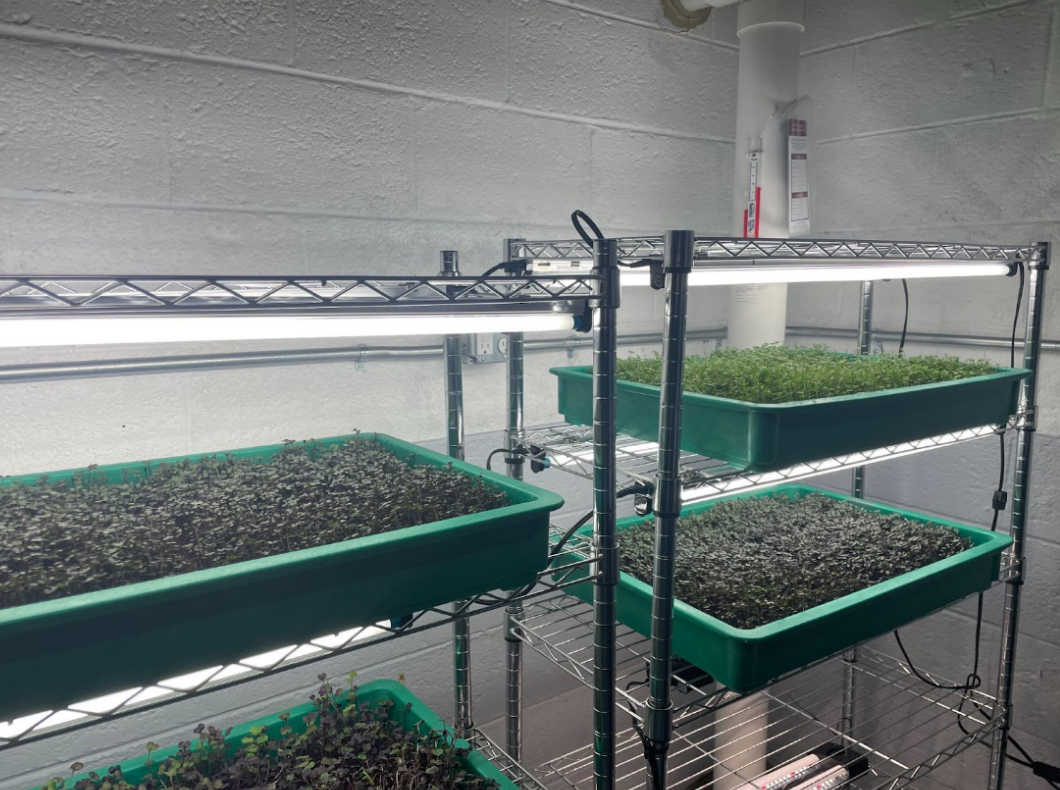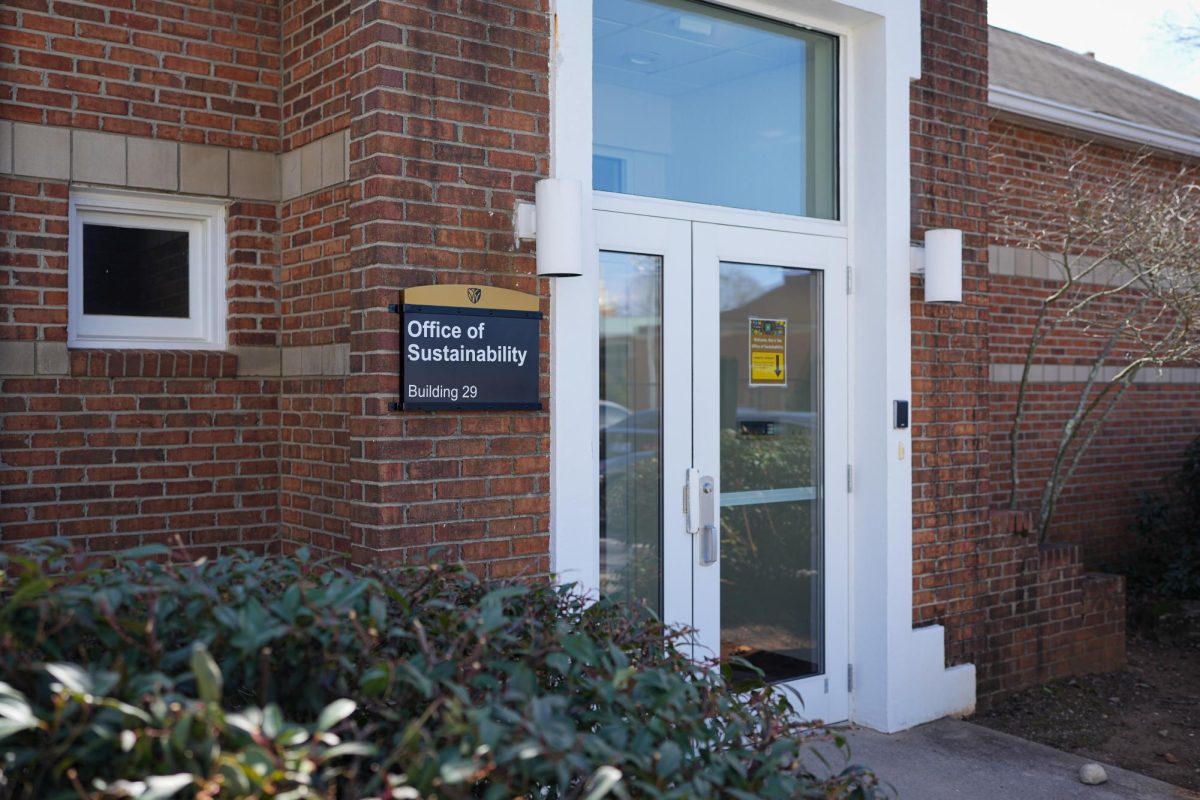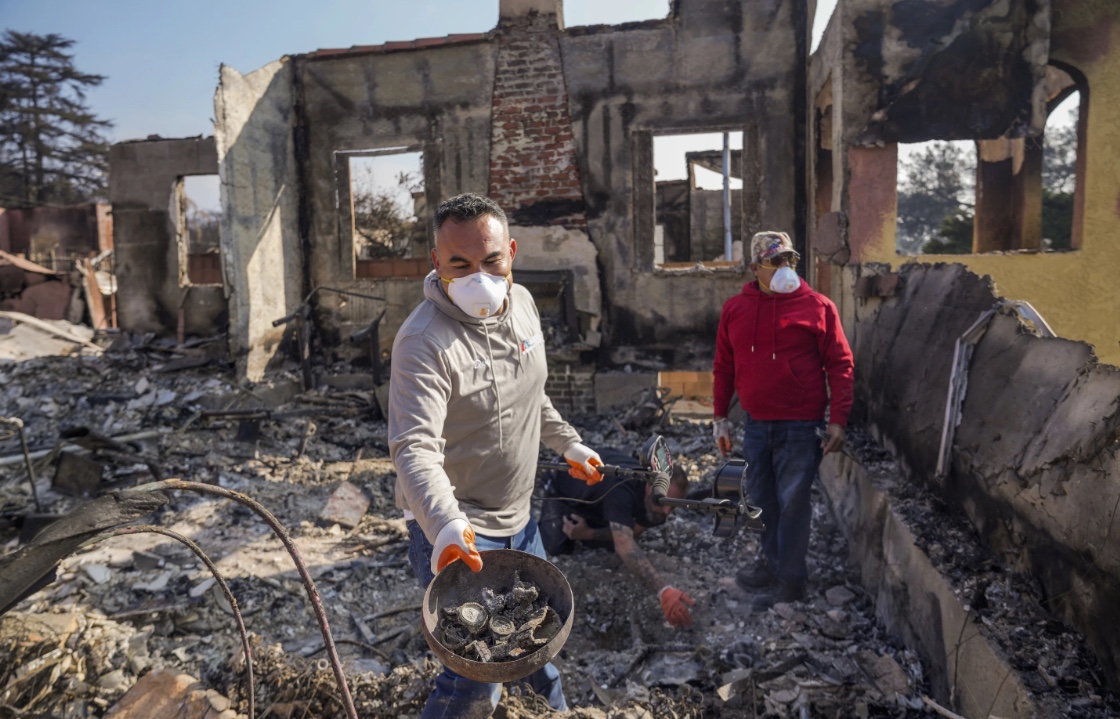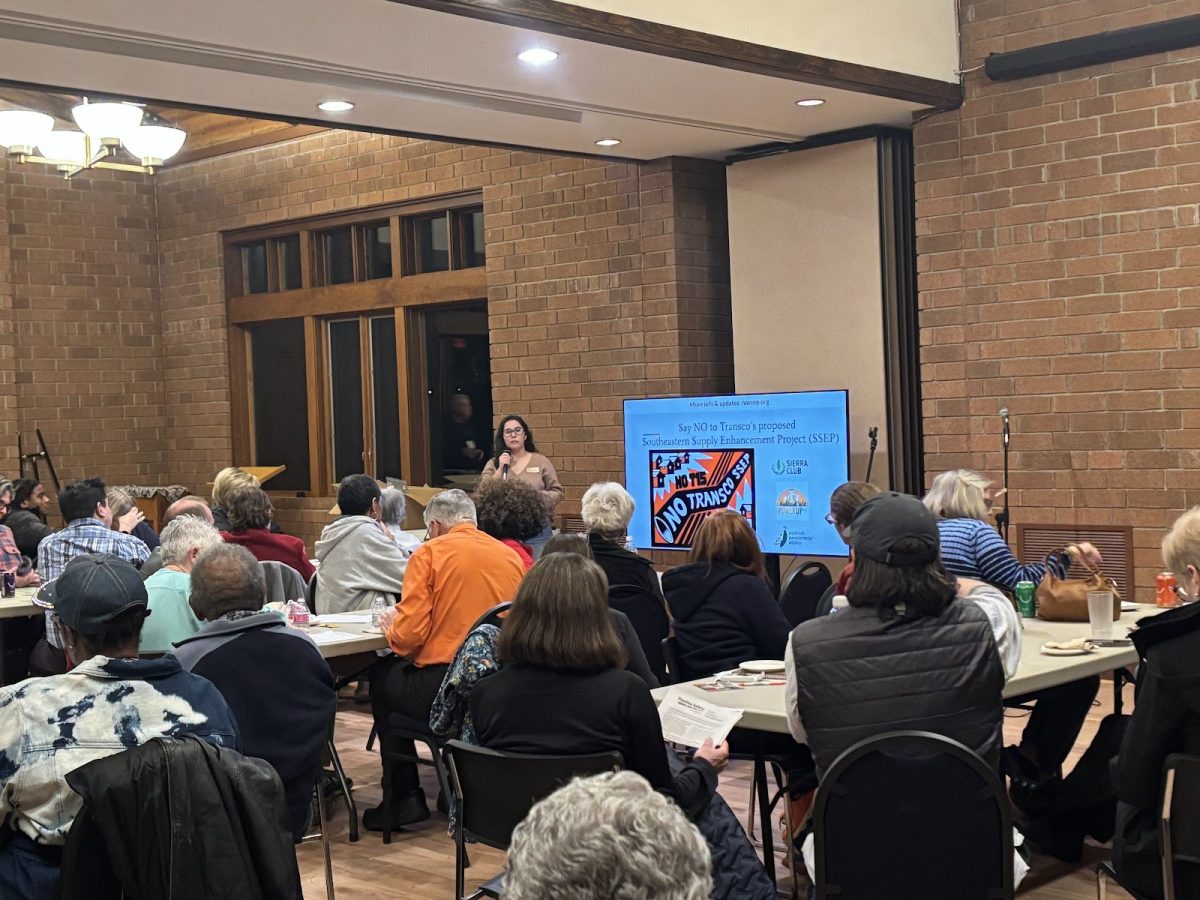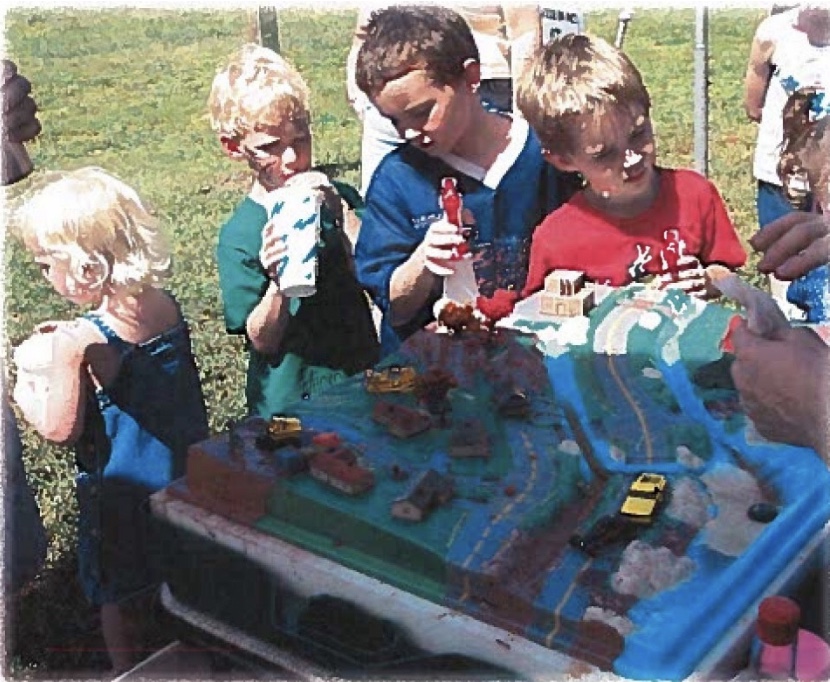Cedric and Allison White (‘09) lead the way down the carpeted steps towards their basement in the Ardmore neighborhood of Winston-Salem with their two small children in tow. While some people use garages to store cars or rusty bikes, the White family harnesses their garage as a hydroponic microgreen and mushroom farm.
Opening the garage door, you’re met with a meticulous and full operation — equipment, freezers, tubs and marker boards line the walls. On 0.28 acres of land, the White family makes use of every square foot for urban farming. Tarps section off different operational stages and harvests. A humidifier and fan lightly blow the curtain surrounding trays of colorful hydroponic microgreens. Purple, red, yellow and green sprouts pop up under lights on silver racks lining the room.
These colorful seedlings are the microgreens — the young seedlings from plants and veggies that are harvested within a short germination and harvest window. Hydroponic farming doesn’t use soil, but instead a water-based nutrient solution to help with the growing process. This makes it accessible to grow within a variety of places, including the indoors. Microgreens are known for their different aromas, textures, flavors and rich nutrient level in foods.
Cedric White, with a degree in botany from NC State, has maintained a love of the outdoors since childhood. The idea for the microgreen farm stemmed from the COVID-19 pandemic. The Whites said they wanted a way to secure food for their family and create a sustainable lifestyle as prices rose and supply chains varied throughout the pandemic. Cedric White said another factor stemmed from walking around the Cobblestone Farmers’ Market in 2020.
“It was the first time [I’d] ever been,” Cedric White said. “[Allison] took me there, and I just thought it was the most amazing thing to see local food. I was walking around…and I noticed there were no microgreens. So, the second time I went, that’s when I kind of fell upon microgreens on YouTube.”
In the 8-9 months following, Cedric began researching hydroponic microgreen farming — looking at the different methods, price points and the right tools before sprouting the seedlings.
As a USDA-approved farm, the White’s microgreen farming works in stages within a 7-14 day period. Using brown coconut coir pads and stainless steel mesh plates, Cedric places coconut or steel plates into black and green hydroponic bins. Taking a handful of seeds previously soaked in nutrient-solution water, he equally distributed them across the pads, making sure to leave room for aeration. Then, he sprayed the seeds with a mixture of water and 3% hydrogen peroxide.
“This is another step that maybe traditional farmers may not have to do because of the hydroponic and microgreens growing conditions,” Allison White said, “but you have to make sure that [the plates are] sterile to prevent mold.”
The bins containing the seeds are then stacked on top of each other in a climate controlled room in “blackout” for 1-2 days. Then, seeds germinate for 3-4 days under lights.
“They stay under the lights for 12-13 hours a day, and then they sleep at night like the rest of us!” Allison said.
The microgreens can get 1.5-3.5 inches tall and are harvested at the “true leaf stage” — when microgreens begin to grow a set of leaves. According to Cedric and Allison White, harvesting the microgreens at the “true leaf stage” ensures that the microgreens retain not only their flavor, but their nutrient density. From there, they are cut straight from the tub into the mouths of hungry customers.
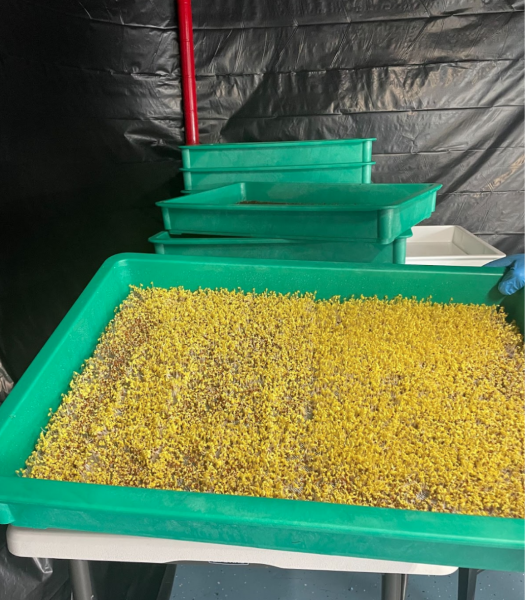
In the basement, Cedric opened a green tub. Inside, yellow sproutlings popped up from the steel plate. Even after 36 hours of germination, the yellow mustard is aromatic.
From mustard and china rose radishes to red acre cabbage, Cedric and Allison White bring 8-9 blends from their 23 microgreen varieties weekly to the Cobblestone Farmers’ Market. In their booth, they stack the tubs vertically for customers to taste, smell and purchase the microgreens. After purchasing, the microgreens can be used in eggs, avocado toast, smoothies, salads or as a garnish. They even offer seasonal microgreens, like pumpkin and corn for the autumnal season.
The White family’s commitment to sustainability and regenerative farming practices extends beyond their business — it’s their lifestyle.
“We really want to limit the amount of things coming in,” Cedric White said. “Our idea is to use everything that we have here that we possibly can, to make this [urban farming] work. Because…it’s all about price. Affordability is our main goal. We want to make this operation to where everything we do is making a difference somewhere else.”
In addition to microgreen and mushroom farming, the Whites have their own chickens, use recycled sawdust for their coop and gather wood chips from trees to make their own soil for their garden. In the community, Cedric White is working towards making an exclusively Black-farmer-supported community agriculture box of produce and has even partnered with Sourdough Microgreen Cracker.
For Cedric White, he finds meaning in growing his own food. As one of the only Black farmers at Cobblestone and now one of North Carolina’s first Black USDA mushroom farmer, he takes pride in helping his family stay healthy and to teach others the importance of health through safe, clean food-sharing.
Cedric White told the Old Gold & Black that watching family members battle health problems as a child changed his perspective on health.
“Being able to find a source of good food — and clean food — is very important to me,” Cedric White said. “I think ever since then [as a kid], I’ve been on a mission to change the world for health — to do what I can to make that happen.”
Allison White, who operates the business side, echoes his statements.
“I think it’s powerful for other people, kids particularly, but other adults as well, to see Black men farming [and] growing food,” Allison White said. “For me, as a mother, I love the idea of really taking control of my family’s food supply. And if it’s not something that I can grow, I love that there are other farmers just like us that are making that possible, bringing it to market and giving me the highest quality possible option.”
The White family’s urban farm highlights that, with the right tools, dedication, patience and time, growth and delicious produce can stem from the most unexpected places.
White Urban Farm Microgreens and Mushrooms are sold at Cobblestone Farmers Market on Saturdays from 8:30-12:30 p.m., or until they sell out. They also offer virtual urban farming consultation, and their microgreens can be purchased online from Wild and Woven Farm or via a subscription service through their Instagram or Website.



